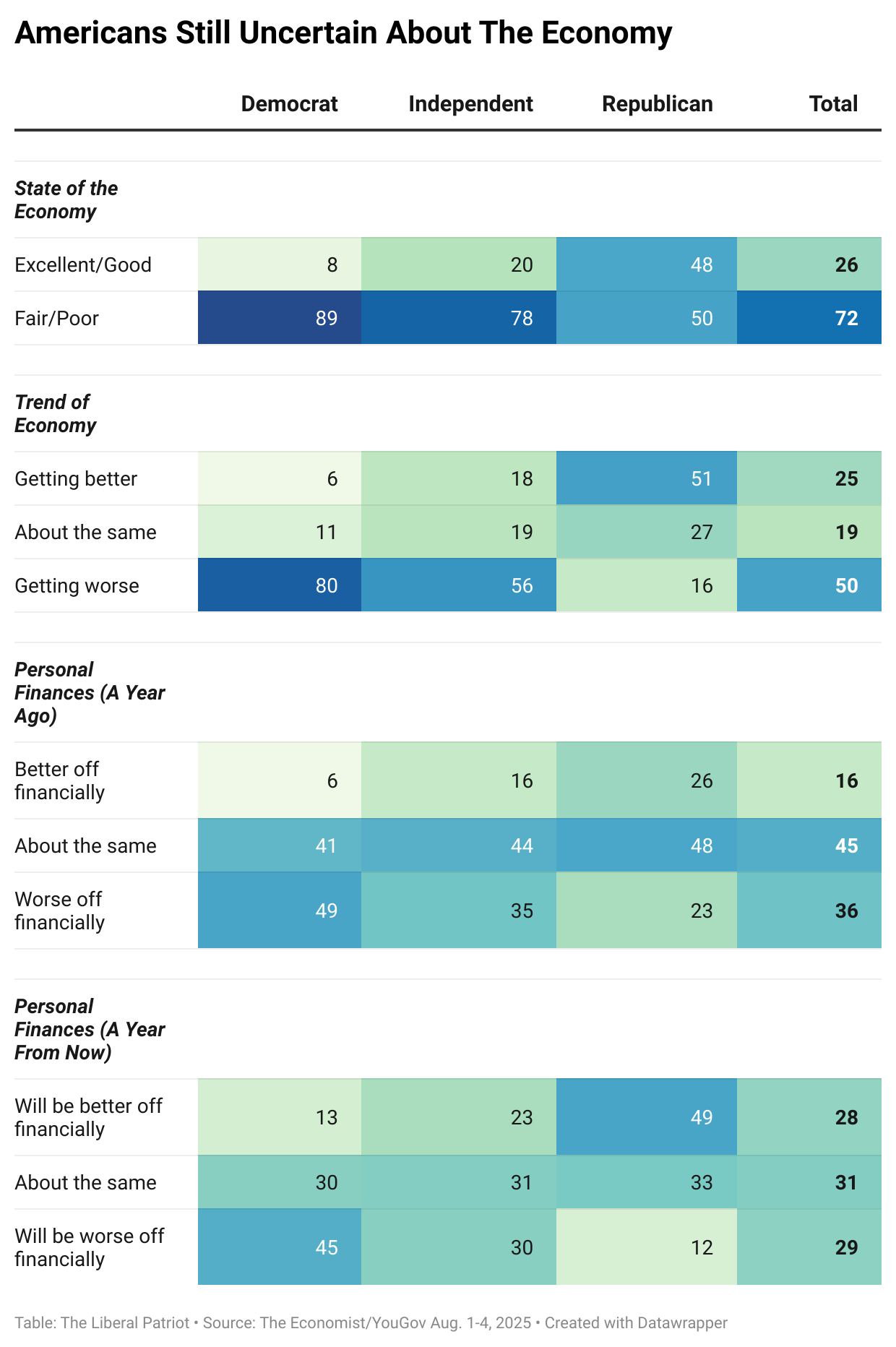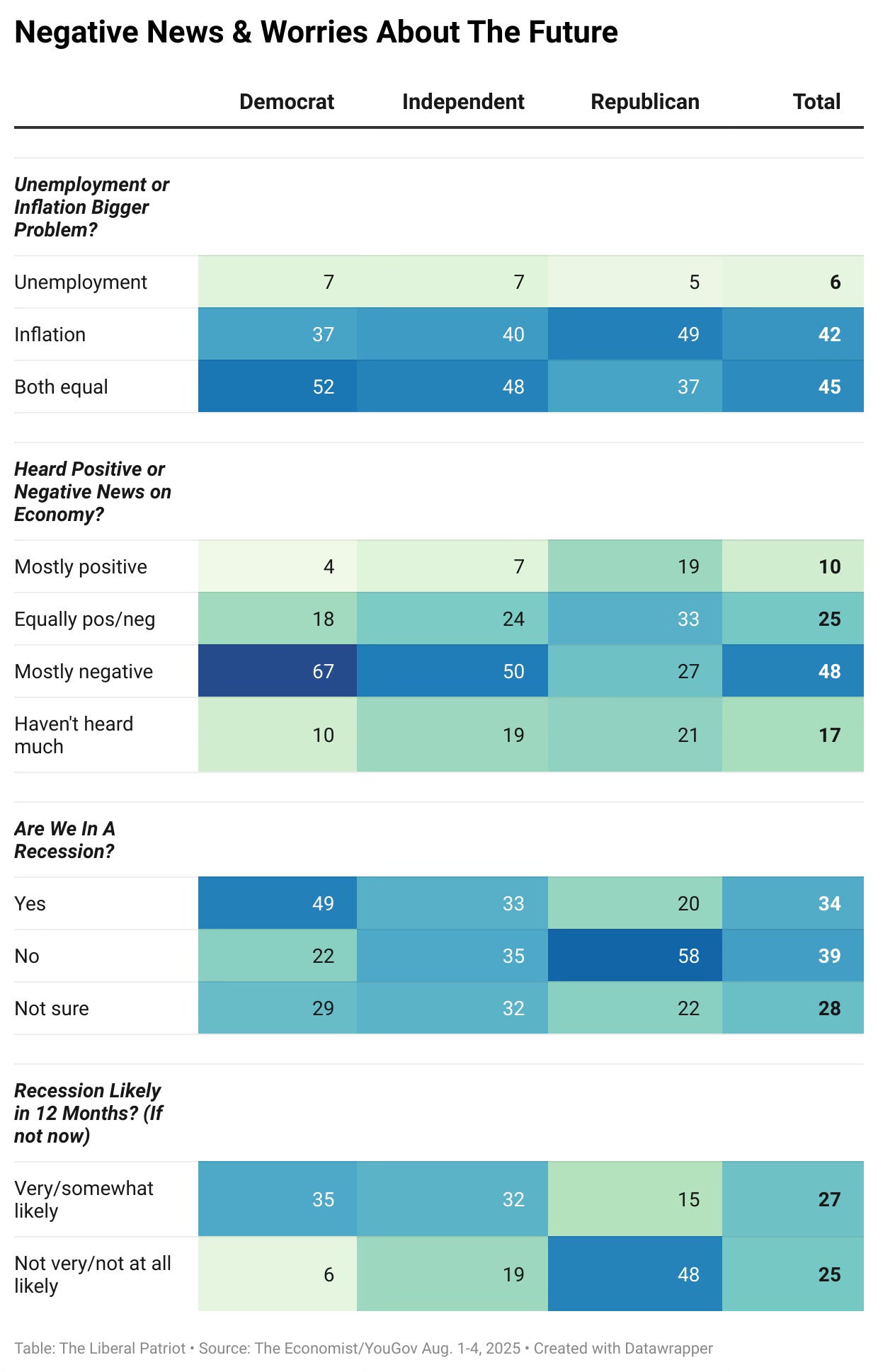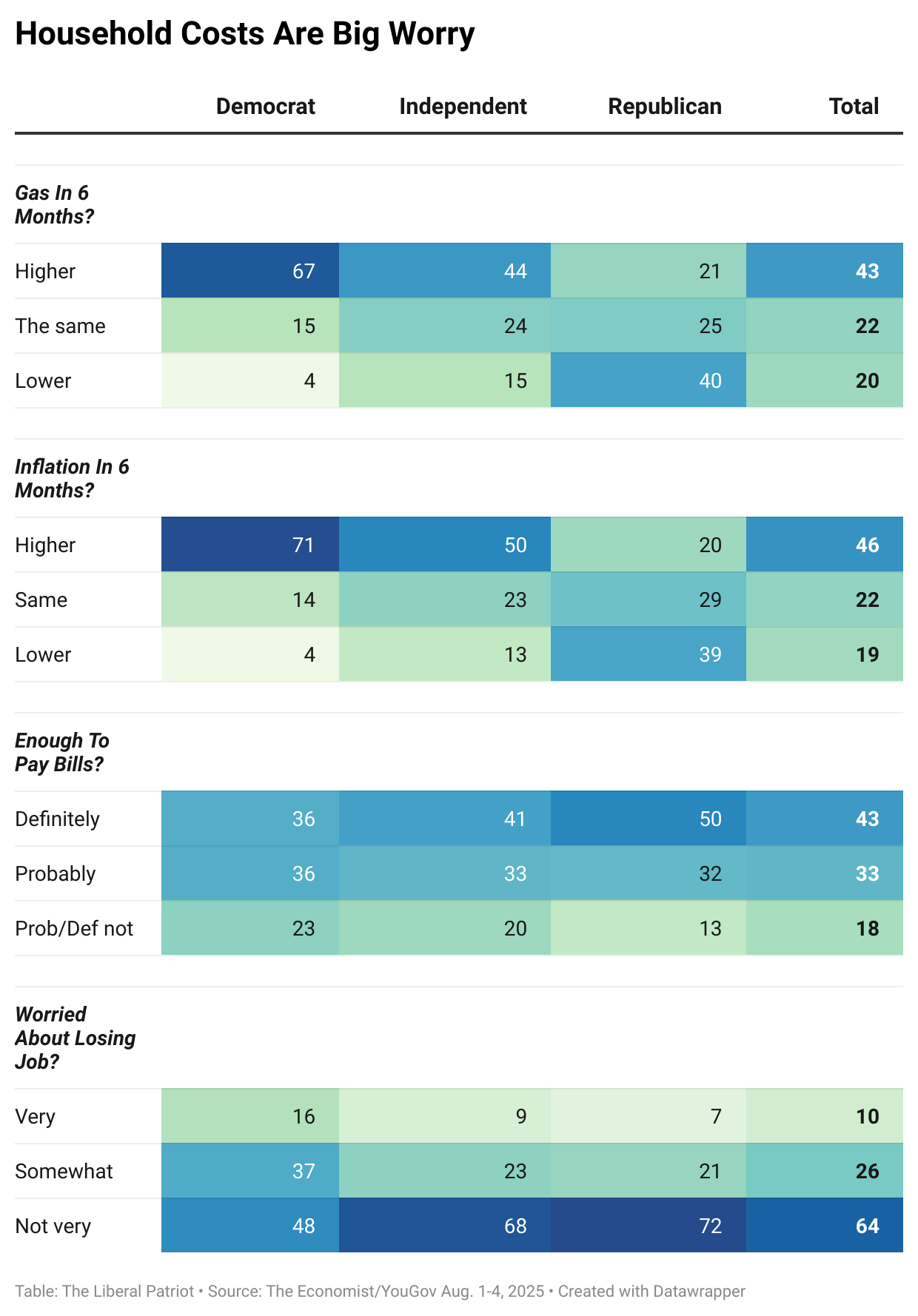Even with a full-scale change in political leadership following the 2024 election, Americans remain deeply pessimistic about the U.S. economy, according to extensive new data from The Economist/YouGov conducted in early August. More than seven in ten U.S. adults rate the current state of the U.S. economy as either fair or poor, with around one quarter saying the economy is either good or excellent. Although partisanship still determines relative economic sentiments, less than half of self-identified Republicans rate the economy as either good or excellent, with nearly nine in ten Democrats and eight in ten independents holding a dimmer view (see table below).
Prospective evaluations of the U.S. economy hardly do better—half of Americans overall believe the economy is getting worse, with Republicans taking a more optimistic look ahead and independents and Democrats not seeing much to cheer about. In terms of their own finances, more than twice as many Americans say they are worse off (36 percent) than better off (16 percent) compared to one year ago, with a plurality saying their personal financial position is about the same as last year (45 percent). Another three in ten Americans anticipate that they will be worse off one year from now, while roughly similar proportions feel things will be better or about the same (see table above).
Despite the proclamations of economic gains from those in politics, many Americans are hearing primarily negative news about the U.S. economy (see table below). Almost half of adults say they have heard mostly negative news stories about the economy versus only ten percent who have heard mostly positive news. One quarter of adults have heard both positive and negative news on the economy, while nearly one fifth haven’t heard much either way. Partisan trends reflect expected patterns, with more than two-thirds of Democrats saying they’ve heard mostly negative news on the economy compared to less than three in ten Republicans. In terms of the two main issues that underlie economic pessimism, Americans overwhelmingly say inflation (42 percent) is a bigger problem than unemployment (6 percent), with a large chunk saying they are equal problems (45 percent). More than one-third of adults believe that the U.S. is currently in a recession, with around four in ten saying we are not in one and about three in ten not sure. Among those who do not currently think we are in a recession, opinion is split evenly between those who believe a recession is coming in the next year (27 percent) and those who do not see one coming (25 percent), with noticeable partisan differences in worries about a potential recession in the next 12 months. Thirty-five percent of Democrats say a recession is very or somewhat likely to set in over the next year versus 48 percent of Republicans who say it is not very likely or not at all likely to happen.
Looking more closely at personal household economic concerns (see table below), 43 percent of Americans overall expect gas prices to be higher in the next six months, and 46 percent expect general inflation to be higher. Again, we see big partisan differences here, with more than 70 percent of Democrats and half of independents expecting higher inflation in the next six months compared to around 40 percent of Republicans who expect inflation to be lower. Fortunately for the country, the worst economic anxiety appears somewhat contained, with less than one-fifth of Americans saying they probably or definitely do not have enough money to pay their bills this month and only ten percent very worried about losing their job.
What do these findings tell us in political terms? Like President Biden before him, President Trump and his administration have not yet shown or convinced most Americans (even many of their own partisan voters) that they have a grip on the overall economy and rising costs. Only 40 percent of adults approve of Trump’s handling of jobs and the economy seven months into his second term, with less than three in ten independents approving of his economic stewardship. Trump’s job approval on inflation and prices is even lower at 34 percent.
It’s an inescapable fact that Americans are deeply pessimistic about the direction of the U.S. economy. Neither Democratic nor Republican presidents and their congressional allies, with wildly divergent tax and spending approaches, appear capable (so far) of restoring economic optimism. Until the green shoots on jobs and prices turn into firm growth, expect Americans to remain dour on the economy and willing to punish those in power, of either party, for failing to meet their needs and desires.







The economy is strengthening and seems likely to continue to do so -- certainly in contrast to the economic debacle and deep hole left by the Biden non-presidency -- and regardless what people may believe or feel.
A more enlightening poll might reveal where people get most of their news about the economy and the major sources and influences for their conclusions. Could it be the glass half empty/half full syndrome that says as much if not more about media spin and existing political bias above economic truths?
True, feelings can and will often effect political outcomes, but that can be both a reality and a danger.
There is opportunity here, if only Democrats had a program other than Resistance